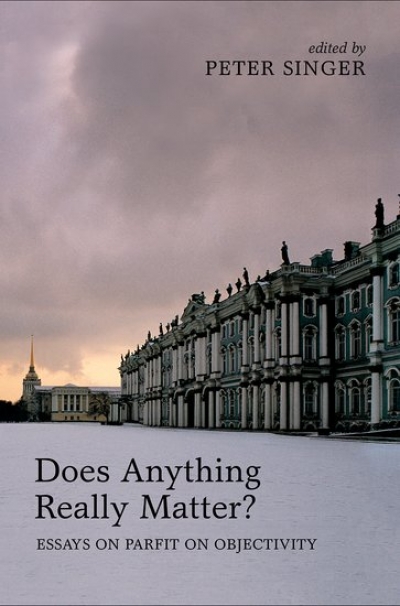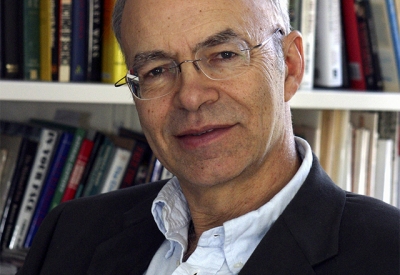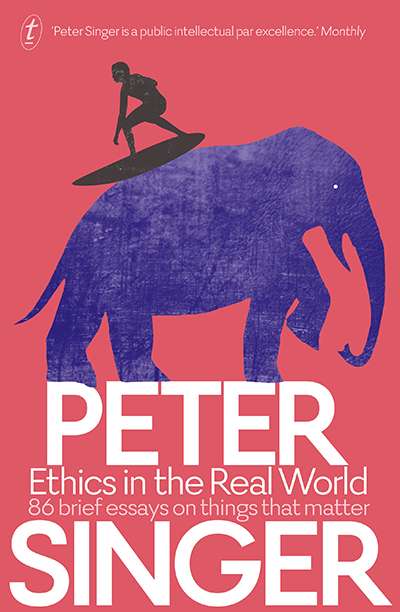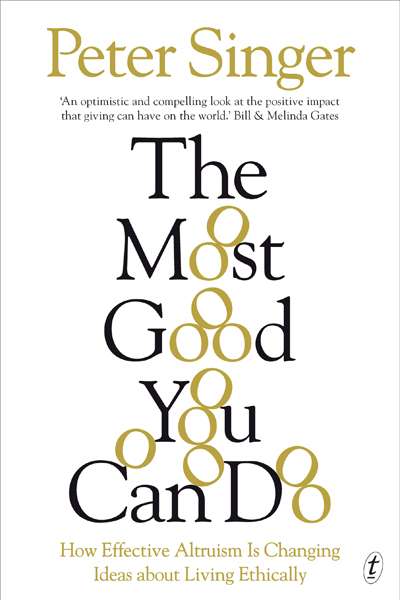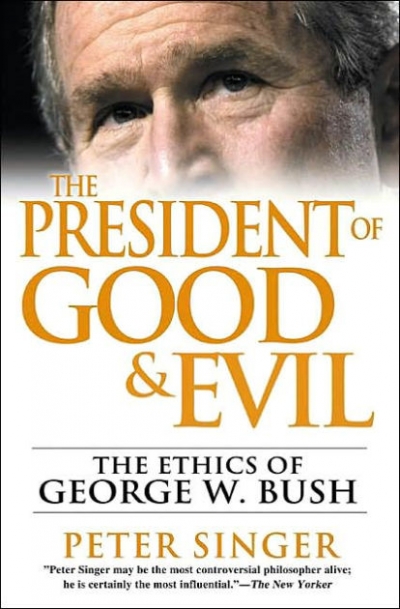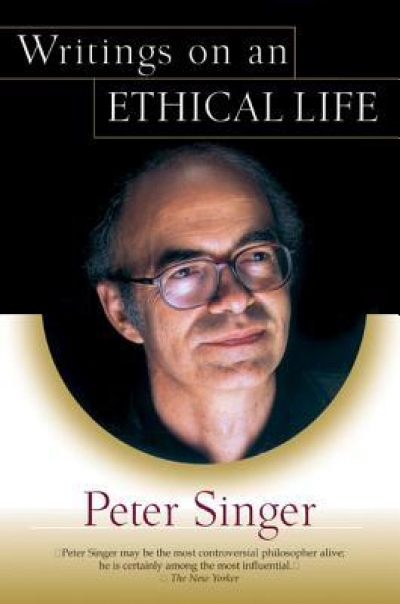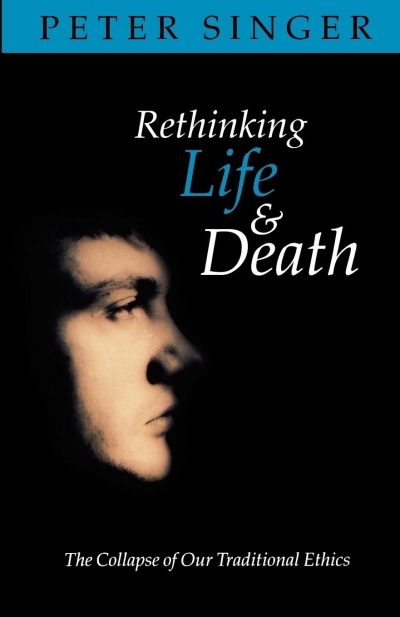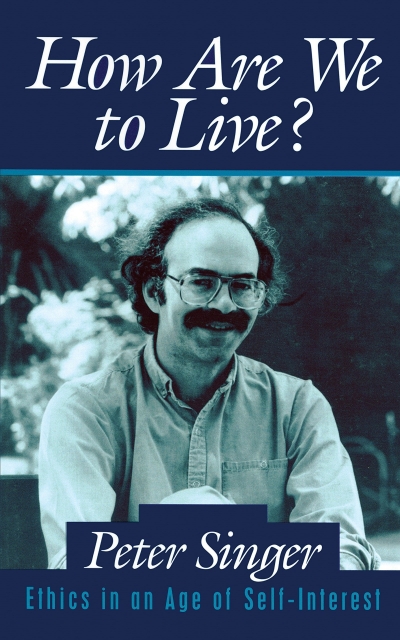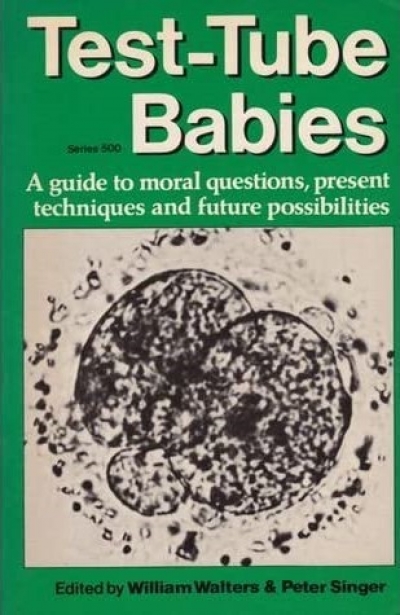Peter Singer
Does Anything Really Matter?: Essays on Parfit on objectivity edited by Peter Singer
by Janna Thompson •
Why do you write? Because I have something to say – and not just to one person, but to as many people as I can reach. And when the writing goes well, I enjoy doing it ...
... (read more)Ethics in the Real World: 86 brief essays on things that matter by Peter Singer
by Ben Brooker •
Robyn Archer debated Peter Singer during the 2015 Melbourne Writers Festival; their topic was 'Is Funding the Arts Doing Good?'. This is an edited version of her paper.
I hear that in New York
At the corner of 26th Street and Broadway
A man stands every evening during the winte ...
The Most Good You Can Do: How Effective Altruism is changing ideas about living ethically by Peter Singer
by Ian Ravenscroft •
The President of Good & Evil: The ethics of George W. Bush by Peter Singer
by Raimond Gaita •
Rethinking Life and Death: The collapse of our traditional ethics by Peter Singer
by Jack Hibberd •
How Are We To Live?: Ethics in an age of self-interest by Peter Singer
by Veronica Brady •
Test-Tube Babies edited by William Walters and Peter Singer
by Brian Scarlett •

